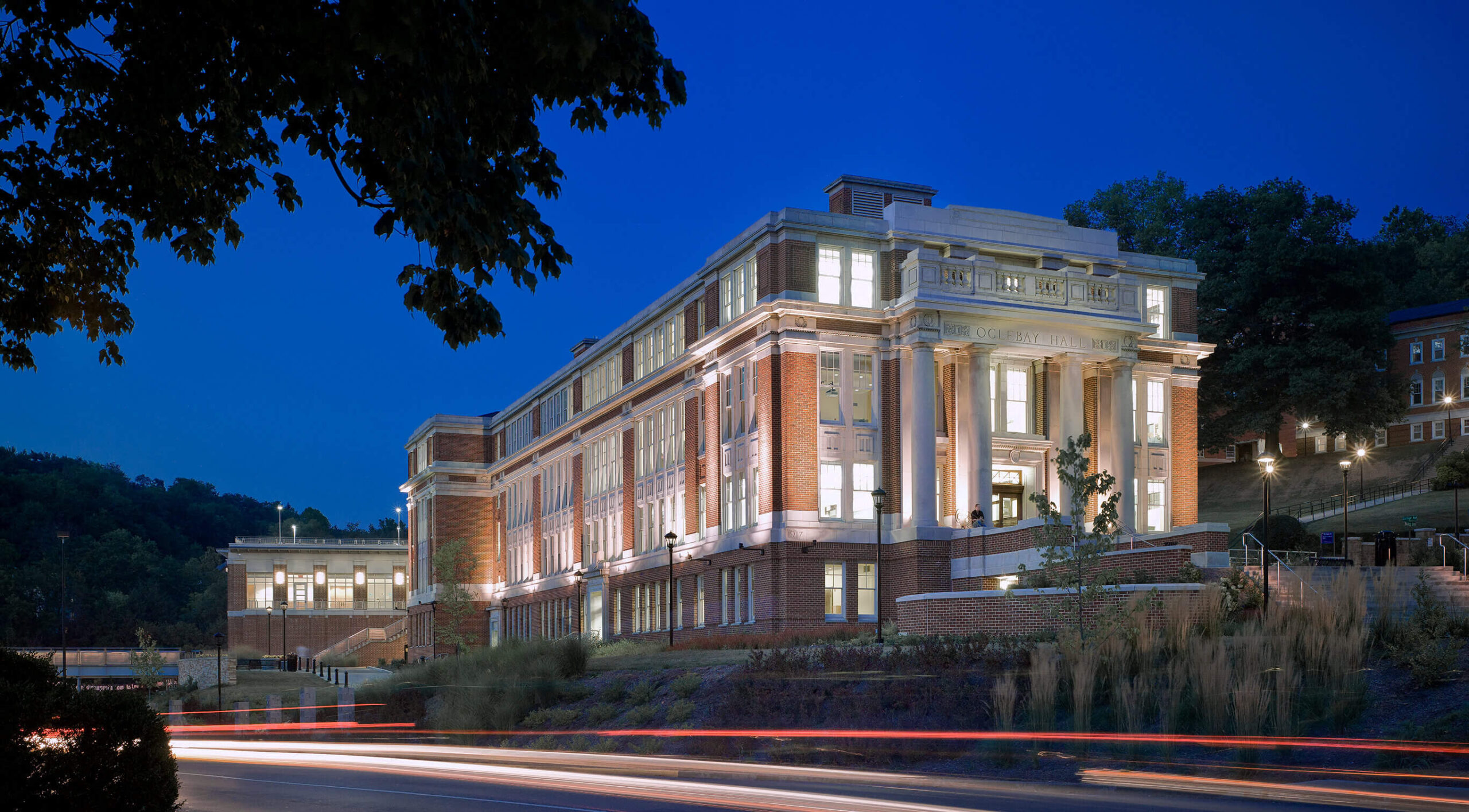A number of students beginning their academic career at WVU are embarking on a journey that no one in their families have before, becoming the first generation of their families to earn four-year degrees.
That experience comes with unique challenges for students as they make their way through an unfamiliar culture with its own language and expectations. How do I talk to my professor? Can someone help me understand the syllabus? If I need tutoring, is it free?
Take heart, though. We’re here to help. What’s more, a number of faculty in the Eberly College of Arts and Sciences had the same experience. They too were once first-generation college students excited about the future, but anxious about asking for help and speaking up in class.
Meet Nicholas Turiano, assistant professor of psychology.
Raised by a blue-collar family in Philadelphia, Pa., Turiano's father worked for Verizon, climbing into sewers and up telephone poles fixing phone lines for 40 years. Watching how proud his father was of his work and how he supported his family without a college degree, Turiano dreamed of following in his father’s footsteps. It wasn’t until later in high school when a friend convinced him to apply to college instead of working for Verizon.
“As I got older, I realized how much damage my dad had done to his body over the years working 12 hour days, seven days a week. Although he was financially providing for the family, he was always stressed and tired,” said Turiano, an assistant professor of psychology. “I remember a conversation with him in high school when he told me to use my brain instead of my body for my career. I didn't get it at the time, but seeing my dad retired now with the physical limitations from 40 years of hard manual labor, I get it.”
That friend eventually became Turiano’s roommate at Pennsylvania State University. His help with the admission and financial aid applications and invitation to tag along on a campus visit made all the difference.
“I was completely lost. I think my parents didn't know how to help me,” Turiano said. “I wish I had more open dialogue with them during the time. I bet if I pressed them a bit more, they would have become more engaged in my college-preparation process.”
Living away from home for the first time at 17, life didn’t get any easier once he arrived at college. After struggling to adjust to balancing academics and working part-time, ultimately failing two classes, tough love from his family gave him the motivation to succeed.
“I honestly think the turning point was realizing I didn't want to be that neighborhood kid who went to college and couldn't handle it,” Turiano said. “I think that gave me the motivation to make lifestyle changes that would help me do well in college.”
Now, Turiano channels that experience to help fellow first-generation students as a McNair Scholars Program mentor.
“Being a first-generation student is concrete proof that there is always a first time for everything. Regardless of your family or your socioeconomic status, you can achieve great things if you work hard at it. I've worked hard to get where I am today and it makes me proud knowing I am the first in my family to go to college and even get an advanced degree,” Turiano said. “I want to give back to those students who are first-generation because that is how we all succeed, helping those who need that little extra push to get what they want in life.”
Dr. Turiano's advice for first-generation students
“Ask a million questions. I was passive early in my college career and didn't know the ins and outs of how to succeed in college. If I would have only reached out, I would have realized there were many programs and faculty and administrators who would have helped me set a foundation. I think some students are embarrassed to utilize services at the University but there is nothing to be ashamed about.”



